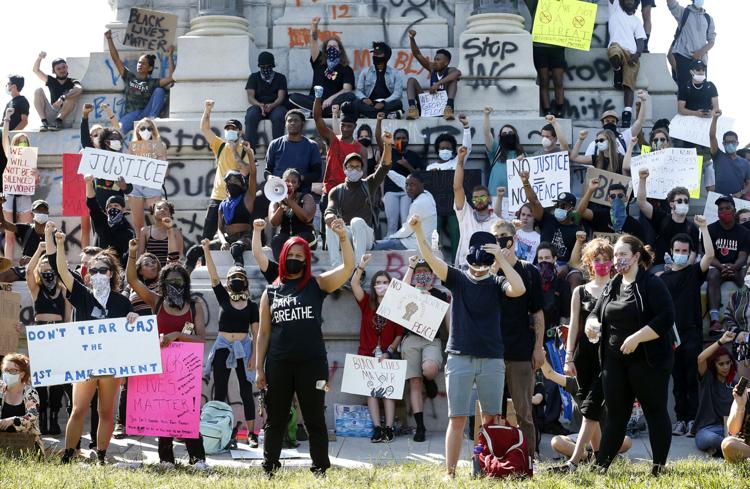
By Dr. Corey D. B. Walker –
“In order for us as poor and oppressed people to become part of a society that is meaningful, the system under which we now exist has to be radically changed. This means that we are going to have to learn to think in radical terms. I use the term radical in its original meaning–getting down to and understanding the root cause. It means facing a system that does not lend itself to your needs and devising means by which you change that system.” – Ella Baker.
In one of his most moving essays in his classic text, Hope and History, the towering intellectual and committed activist Vincent Harding raises the bracing question – “Is America possible?” Harding uses this question to extend an invitation for readers to critically confront the prospects and possibilities of the future of America’s experiment with democracy. By positing the question, Harding recognizes that the answer is not yet settled. Indeed, it is still very much an open question.
The brutal killings of Ahmaud Arbery, Breonna Taylor, and George Floyd and the current uprisings across the United States have shaken the nation. The latest episodes in America’s long and extensive history of state-sanctioned violence against African Americans and ingrained anti-Black racism force us to face this challenging question, “Is America possible?”
Yet, there still remains a strong and unyielding desire to not only avoid such a question but to offer simplistic solutions to deep-seated problems rooted in the very foundation of the nation. A casual American exceptionalism blinds us to the depth of the crisis we confront. Indeed, the real tragedy is the normality of disproportionate, violent, and senseless black death that continues to exceed any sense of proportionality historically and in our contemporary moment.
Our casual American exceptionalism blinds us to what passes as ordinary, namely the broad and deep democratic deficit that continues to result in historic and ongoing inequalities that govern the lives and life chances of African Americans and other marginalized communities in the United States. In a critical sense, America remains more of an idea than a living reality, particularly for those who are the ends of the beginnings of the American dream.
“Is America possible?”
To truthfully confront this question will require us to dispense with the myths of America that have claimed far too many martyrs. In his “Eulogy for the Martyred Children,” Martin Luther King, Jr., poignantly stated, “They say to us that we must be concerned not merely about who murdered them, but about the system, the way of life, the philosophy which produced the murderers.”
“Is America possible?”
This open question should remain open in order to challenge us to dig new wells of democratic possibly. Nothing less is required than we dispense with the myths the blind us to the varied and multiple undemocratic institutions and ideas which structure our lives. The searing words of Martin Luther King, Jr. serve as a clarion call to the work of a just democratic politics has only just begun: “The whirlwinds of revolt will continue to shake the foundations of our nation until the bright day of justice emerges.”
“Is America possible?”
Our response to this question will determine the destiny of the American experiment with democracy and the fate of the nation.
Corey D. B. Walker is the Wake Forest Professor of the Humanities at Wake Forest University and a member of the board of the Virginia Interfaith Center for Public Policy.
(Photo credit: Alexa Welch Edlund, Richmond Times-Dispatch, Protesters gathered at the Lee Statue Tuesday afternoon, June 2, 2020)
